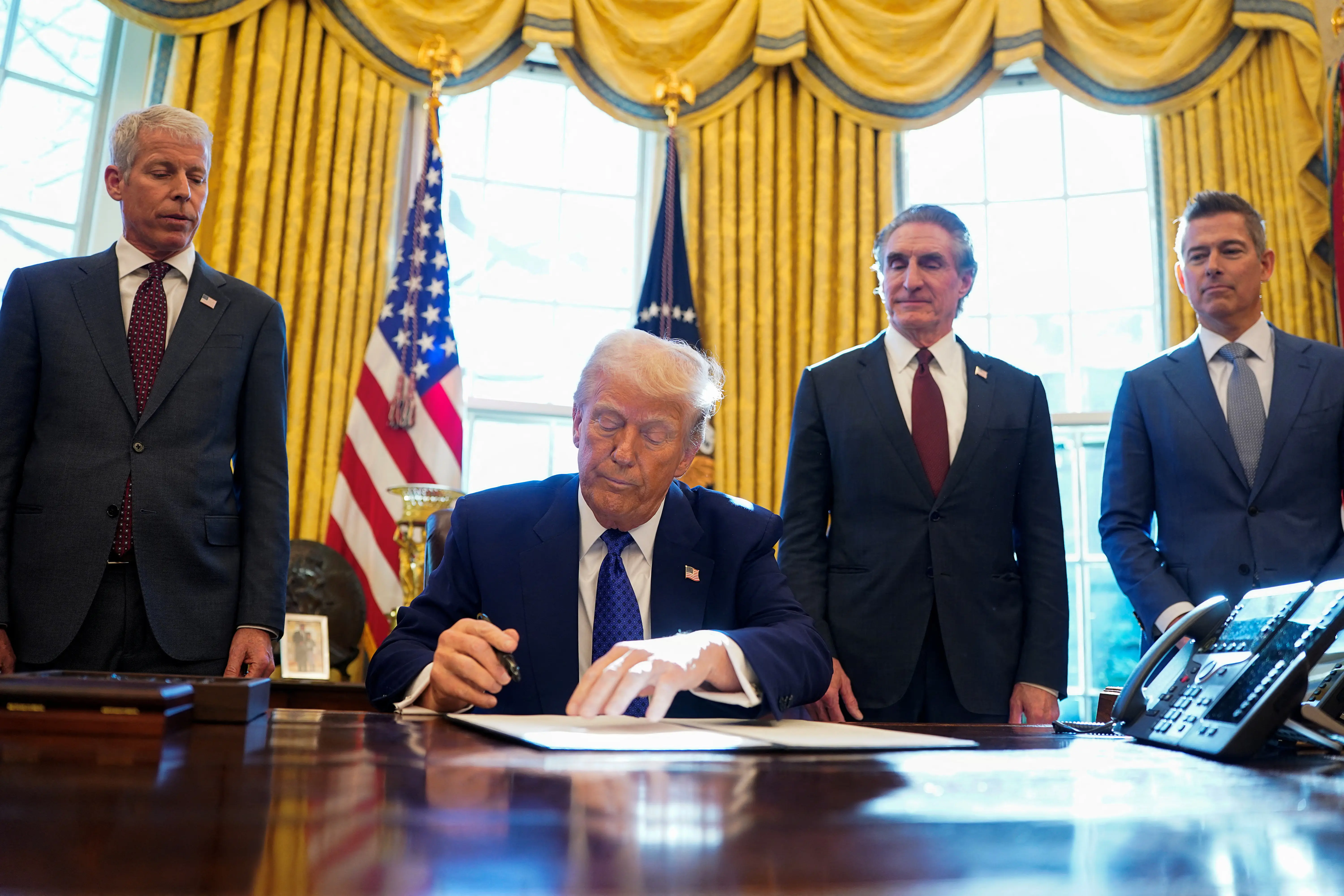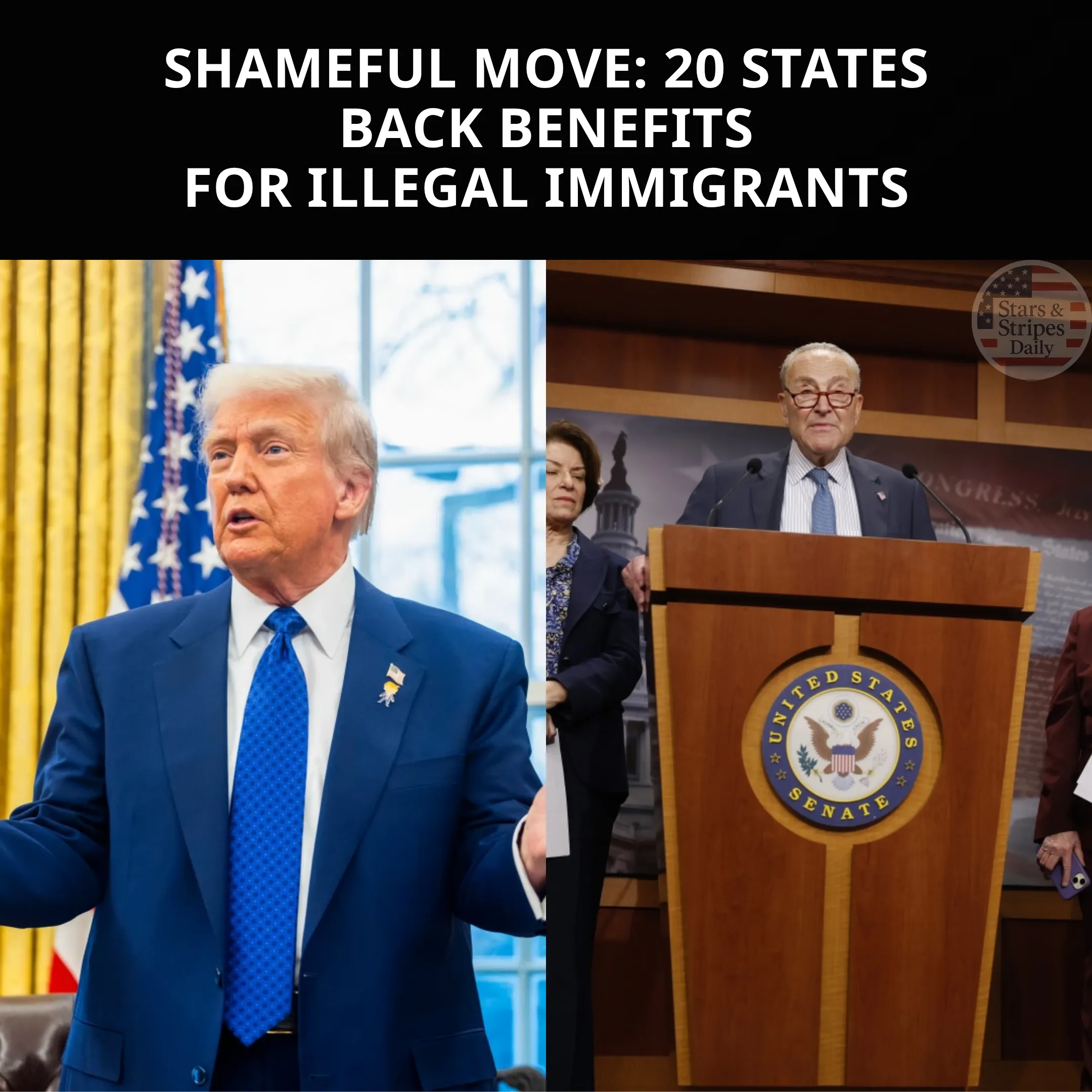
In a dramatic escalation of the ongoing national debate over immigration and welfare, twenty U.S. states have filed a joint lawsuit against the Trump administration, demanding the reinstatement of taxpayer-funded benefits for undocumented immigrants.
The states, many of them governed by Democrats, argue that the recent rollbacks enacted by the Trump administration are not only legally questionable but also morally indefensible, particularly as they strip access to programs such as Head Start, public healthcare, and subsidized education.
The lawsuit, filed in federal court, centers on a decision by the Trump administration to eliminate or restrict undocumented immigrants’ eligibility for certain public services and welfare programs.
Among the benefits removed were access to Head Start for children, certain public healthcare options, subsidized college tuition, and other forms of state and federal support.
This move, cheered by immigration restriction advocates, is now being aggressively challenged by states that have historically maintained more inclusive policies.
Despite months of public denial by many Democratic leaders that illegal immigrants were receiving taxpayer-funded benefits, the lawsuit effectively confirms that such benefits were indeed being distributed to non-citizens.
This revelation has ignited a new wave of backlash, especially among conservative commentators and taxpayers who have long suspected that public funds were quietly being used to support undocumented populations across the country.
The legal complaint outlines a broad range of grievances. Plaintiffs argue that the Trump administration overstepped its legal authority by changing benefit eligibility through executive action without congressional approval.

They further claim that the new restrictions violate equal protection clauses by unfairly targeting vulnerable populations, particularly undocumented children and families who have long relied on these services for survival and stability.
State attorneys general leading the case assert that denying these benefits creates a humanitarian crisis in communities where immigrants contribute economically and socially, regardless of their legal status.
They point to local evidence, including school district records and health department reports, showing the detrimental effects of denying access to early education, medical care, and affordable tuition.
At the heart of the lawsuit is the issue of Head Start—a federally funded early childhood education program that, for decades, has included children of undocumented parents in many jurisdictions.
The Trump administration’s move to exclude undocumented children has resulted in widespread confusion and forced removals from classrooms in several states, which the plaintiffs claim is both cruel and detrimental to early childhood development.
Additionally, the lawsuit highlights the removal of access to healthcare services previously available through federally subsidized programs such as Medicaid and CHIP.
Although undocumented immigrants are not eligible for full benefits under these programs, many states had developed pathways for children and pregnant women to receive essential care.
The Trump administration’s decision to tighten enforcement mechanisms and redefine eligibility criteria has abruptly blocked thousands from continuing treatment.

The lawsuit also takes aim at new regulations affecting in-state college tuition for undocumented students. Many states had previously allowed students who attended and graduated from high school within their borders to qualify for in-state tuition, even without legal residency.
Under the Trump administration’s new directives, these students would be forced to pay out-of-state or international rates, effectively pricing many of them out of higher education.
Opponents of the lawsuit argue that taxpayer-funded benefits should be reserved exclusively for U.S. citizens and lawful residents. They contend that the states are using public resources to subsidize individuals who entered the country illegally, thereby encouraging further undocumented immigration.
Supporters of the Trump administration’s actions claim the new policies are not only lawful but necessary to uphold the integrity of the U.S. immigration system.
The states, however, argue that the federal government is failing to consider the long-term societal costs of withholding education and healthcare from immigrant communities.
They warn that denying access now will only increase public spending later—through emergency room visits, public health crises, and social instability stemming from lack of educational opportunity.
What has further inflamed the controversy is the implicit admission—via this lawsuit—that undocumented immigrants had been receiving taxpayer-funded support all along, despite claims to the contrary by many Democratic officials. Conservative critics seized on this point, accusing Democrats of gaslighting the public while covertly using public funds to support illegal immigration.
“This lawsuit is essentially the quiet part said out loud,” remarked one political commentator. “For months, we were told these benefits didn’t exist, weren’t being used by illegals. Now twenty states are fighting in court to get them back. That tells you everything you need to know.”

The lawsuit has also sparked renewed debate over the Safeguard American Voter Eligibility (SAVE) Act, a bill introduced earlier this year by Rep. Chip Roy of Texas.
The bill, which passed the House but awaits Senate consideration, would require all individuals to provide proof of U.S. citizenship when registering to vote in federal elections. It would also mandate that states purge non-citizens from their voter rolls and impose penalties on officials who allow ineligible registrations.
Proponents of the SAVE Act argue that it is a necessary measure to preserve election integrity, particularly in light of the recent revelations that undocumented individuals were receiving state services. They contend that the same lack of oversight could lead to non-citizen participation in elections, intentionally or not.
While the lawsuit does not directly address voting rights, its implications extend well beyond healthcare and education. Critics argue that the larger Democratic strategy is to build long-term political power through the expansion of immigrant access to public services. Some conservatives claim this paves the way for eventual voting rights and district expansion in Democratic-leaning areas.
Legal experts predict that the case will ultimately reach the Supreme Court, given its implications for immigration law, federalism, and the use of executive power.
For now, federal judges will determine whether the Trump administration’s benefit restrictions constitute an overreach of authority or a rightful correction to previous policy excesses.
The timing of the lawsuit is politically significant. As the 2026 midterm elections approach, immigration continues to rank among the most divisive issues in American politics.
The case pits Democratic-led states seeking to preserve inclusive policies against a Republican administration determined to enforce stricter boundaries on public spending and border control.
In the broader cultural context, this lawsuit is not just about benefits—it is a flashpoint in the national identity debate. Are public services a human right or a privilege of legal status? Do taxpayers have the right to exclude non-citizens from welfare, or does compassion override citizenship in matters of basic care and education?
As this case unfolds, the country watches. For many immigrant families, the lawsuit offers a glimpse of hope. For others, it raises concerns about the dilution of national sovereignty and fairness to taxpayers. Whatever the outcome, the battle over benefits for undocumented immigrants is no longer silent. It is in court. It is political. And it is far from over.




